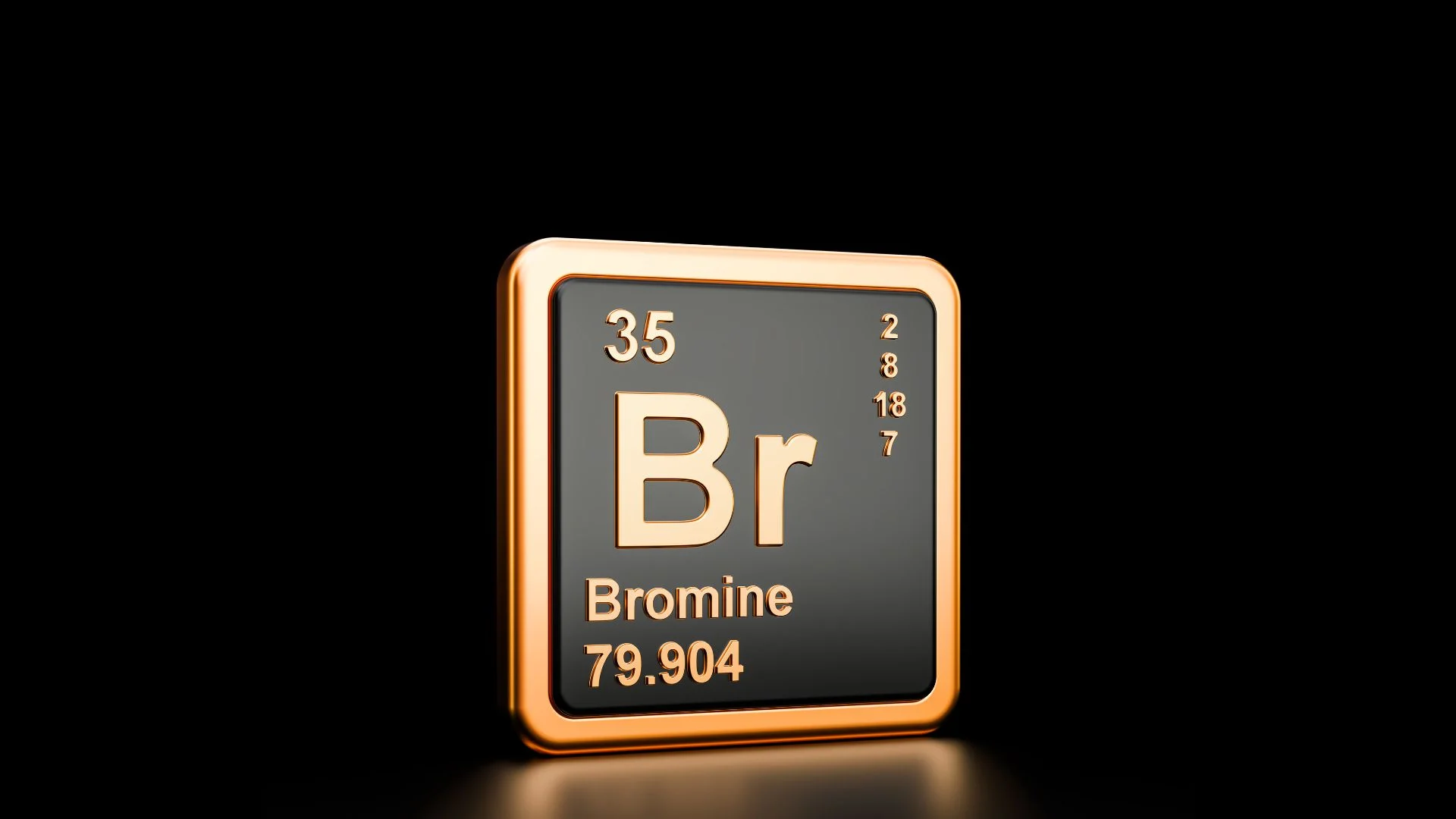Chlorine for swimming pools has been used for many years and the question of its safety has helped bring out different sanitizing products to do the same thing like Bromine and its use as an alternative sanitizer in swimming pools. What are the Advantages of Bromine in Pools?
Bromine advantages:
- Does not give off a strong smell
- Gentler on eyes than chlorine
- Effective disinfectant & algicide
- Acts as an oxidizer
- Works with vinyl liner, concrete, & fiberglass pools
- Bromine works in warmer temperatures
- Keeps H2O chemistry balanced due to its low pH
- Less chemical adjusting is needed.
Pool bromine is a sanitizer, oxidizer, and algicide that is used in swimming pools and spas. In its original state, bromine is a reddish brown liquid, but for pools, it can be found in tablet, granular, stick, and liquid sanitation products though you would never use pure elemental bromine in a pool or spa.
What are the Advantages of Bromine in Pools
Chlorine and bromine are two similar elements often found together in nature. Chlorine makes water safe to drink, while bromine is used in industrial applications to create products like plastics and even explosives. Both chlorine and bromine have several uses outside of the home and workplace, including treating water for drinking, cleaning surfaces, and disinfecting medical facilities.
Chlorine and Bromide both belong to the same chemical family. Bromine kills contaminants more slowly but for a longer extended period of time; plus, it can help keep H2O chemistry more balanced due to its low pH, meaning less chemical adjustment is demanded.
Bromine works by a process of ionization, which actually tears apart the chemical bonds of the contaminant; it also has a lower pH than chlorine, so it helps balance the chemistry of spa or swimming pool water.
On the same note, chlorine and bromine are components of many household products such as bleach and pool disinfectants. Chlorine can be harsh for those with sensitive skin or eyes, or those who have breathing conditions like asthma.
Bromine is a great alternative because it’s less abrasive, less chemical-smelling, and less likely to trigger asthma attacks. Bromine is more stable than chlorine, especially in warm water, making it more commonly used in spas, whereas chlorine is more often used in pools. The difference to this is ultraviolet (UV) light, which destroys both chemicals, but bromine breaks down faster.
Some other advantages of using Bromide over Chlorine:
- Does not give off a strong smell
- Gentler on the eyes than chlorine
- Effective disinfectant and algicide
- Acts as an oxidizer
- Great for sanitizing spas and hot tubs
- Works with vinyl liner, concrete, and fiberglass pools
- Bromine works better in warmer temperatures
Chlorine is readily available, very effective, and can be used on indoor and outdoor pools, however, it leaves a strong scent, and could cause skin irritation, and can damage-wear down or even bleach the vinyl liner. When it comes to bromine, it does not have a strong scent, it’s gentler on the skin, does a great job sanitizing high-temperature pools, and works well with vinyl liners.
The main disadvantage of using bromine is that is very slow to dissolve in comparison to Chlorine and especially in hard water regions, Bromine is also more expensive to buy in comparison to chlorine with a difference of cost from around 30% or more. More than half of pool bromine can be destroyed by exposure to sunlight in just 60 to 90 mins.
What are the differences between using Chlorine vs Bromide in a swimming pool?
- Chlorine(Cl) works faster to kill contaminants but for a shorter period of time, as it dissipates faster.
- Bromine(Br) a more stable chemical kills contaminants more slowly but for a longer period of time & can help keep H2O chemistry more balanced ……………………………. Read more
Disadvantages of Bromine
Like any chemical, Bromine has its disadvantages:
- Bromine is more expensive than Chlorine
- Bromine has less oxidation power than Chlorine
- Bromine is not suitable for those with Chlorine allergies
- Bromine does not work as well as Chlorine when exposed to sunlight
It’s important to consider the amount of each chemical that is needed to do the same job.
- Chlorine: 1-3 ppm (parts per million) parameter for swimming pools
- Bromine: 3-5 ppm (parts per million) parameter for swimming pools
Though you need more bromine to sanitize the same amount of pool water as chlorine, you have to add chemicals less often, so the dosage may even out over time over a period of time; you may even end up using less bromine in the long run.
How do you Switch From Chlorine to Bromine sanitizer?
To switch from chlorine to bromine:
- Stop using chlorine
- Empty pool to ¾ min. level
- Clean filtration system by backwashing
- Make sure there is no more Chlorine stabilizer (CYA) in H2O
- Begin using bromine tablets
- Replace floater/chlorinator to prevent chlorine residue ………………………………………. Read more
JimGalloway Author/Editor

References:
